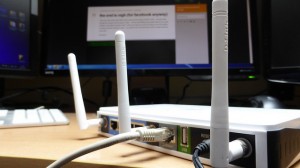City Schools Say They’ll Get Less Money If Federal Internet Program Is Updated

smemon / Flickr
Even if the Federal Communications Commission adds $2 billion to a program to help purchase high-speed Internet, urban school districts said they'll probably receive less money.
City school districts say a plan to expand a federal program that helps schools and libraries purchase high-speed Internet access will actually reduce the amount of money those districts receive.
Miami-Dade school officials and the Council of Great City Schools said proposed changes to the E-Rate program will force city school districts to pay more to match federal grants and reduce the overall value of those grants.
That’s because the Federal Communications Commission has proposed changing how the grants are prioritized and funded in order to modernize the program. E-Rate is a grant program funded by taxes on phones and other communications. The program helps schools and libraries purchase high-speed Internet.
The goal is to put a higher priority on wireless networking. Wireless grants were only funded if any of the $2.3 billion E-Rate money was left over after wired grants were awarded. Few wireless grants were funded the past few years.
The proposal would also add $2 billion over the next two years.
The FCC could vote on the proposal Friday.
But districts that found a way to pay for wireless — such as Miami-Dade — said they’ll get less money because they’ll appear to have less need for wireless grants. The district sought and won a $1.2 billion bond and used that money and E-Rate grants to update schools. Work will be completed this year.
“It’s kind of a penalty on us for doing what they wanted us to do,” said Debbie Karcher, chief of information technology for Miami-Dade schools. “We went to a lot of trouble to use E-Rate and do it.”
The FCC proposal also changes the way the grants are funded. Under the current rules, school districts pay between 10 percent and 80 percent of the project’s total cost. Most urban districts pay a local match of just 10 percent because they have a high percentage of low-income students.
The minimum match would increase to 20 percent of the project’s total cost, according to the FCC proposal.
“E-Rate will contribute four dollars for every one dollar spent by the poorest schools,” Mainish Naik with the Council of Great City Schools wrote in the group’s newsletter, “but this change actually doubles the financial cost that will be incurred by high poverty districts.”
Miami-Dade’s Karcher wants grants to be given out based on the number of students enrolled, and to give districts more flexibility in how they spend the money for networking. And both Karcher and the Council of Great City Schools said the FCC needs to add more money to E-Rate — and not just shift funding from other sources.
“We can’t keep funding this much technology on the dollars allocated 12 years ago,” Karcher said.
Schools in Florida and across the nation are undergoing a digital overhaul right now. New online exams tied Common Core standards fully adopted by Florida and 42 other states will test school networks. And Florida lawmakers have required half of all classroom instruction is delivered digitally — whether through electronic textbooks, web content, high-tech classroom tools or other means — by the time classes start in 2015.
